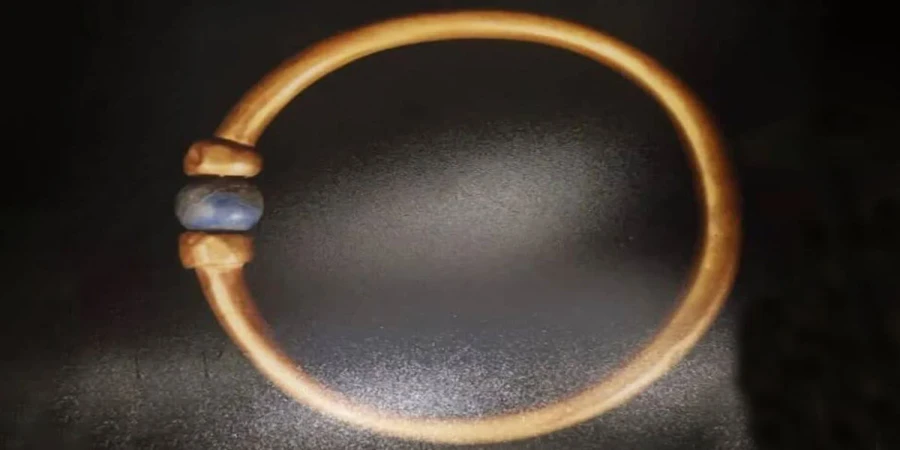
ছবি: -Collected Photo
Cairo police have reported the theft of a 3,000-year-old bracelet belonging to a pharaoh from the Egyptian Museum in the capital. The artifact, described as priceless, was later sold for just $4,000 and ultimately melted down. Authorities announced on Thursday that a museum employee had been arrested in connection with the case.
The bracelet, decorated with lapis beads, dated back to the reign of Pharaoh Amenemope of Egypt’s 21st Dynasty. Officials said the object was stored under strict security measures and had been scheduled for display in Italy within weeks. The theft came to light on Saturday when museum staff discovered the bracelet was missing from the storage archives.
According to media reports, investigators found that the museum employee stole the bracelet on September 9. A Cairo-based silver merchant allegedly assisted him in selling the item. Initially, the bracelet was sold to a gold dealer for 180,000 Egyptian pounds. It was then resold to a factory worker for 194,000 pounds, before being melted down.
Under Egyptian law, theft of antiquities carries severe penalties, including life imprisonment and fines ranging from one to fifty Egyptian pounds. Additionally, anyone found guilty of causing damage to archaeological treasures may face up to seven years in prison and a fine of up to one million Egyptian pounds.
French Egyptologist Jean Guillaume Ouellet Pelletier explained that the bracelet had originally been discovered in the Nile Delta region during an excavation of King Susen’s tomb. He described the object not only as aesthetically remarkable but also of significant scientific importance. “It was one of the most fascinating finds from that period,” he said.
The incident has drawn parallels to previous high-profile thefts from Egyptian museums. In 1977, a painting known as Poppy Flowers, valued at $55 million, was stolen from a Cairo museum. That case remains one of the most notorious art thefts in the country’s history.
The theft of the pharaoh’s bracelet has sparked fresh concerns about the safeguarding of Egypt’s cultural heritage. Despite ongoing efforts to secure its vast collections, the Egyptian Museum has faced criticism over vulnerabilities in its security systems. The loss of the bracelet, an artifact carrying both historical and cultural weight, is regarded as a severe blow to Egypt’s archaeological legacy.
Officials have not disclosed whether authorities will attempt to recover remnants of the melted bracelet or whether further arrests are expected. Investigations are ongoing, and law enforcement agencies are working to trace the individuals who facilitated the sales after the initial theft.
Archaeologists and heritage experts expressed deep disappointment over the destruction of the bracelet. Many stressed that once such artifacts are lost or destroyed, they cannot be replaced or restored, leaving an irreplaceable gap in the study of ancient civilizations.
The case highlights the continuing challenges Egypt faces in preserving its archaeological treasures amid ongoing threats from theft, trafficking, and destruction. While Egypt’s legal system enforces strict penalties for such crimes, experts argue that prevention through stronger security measures is crucial.
For now, the fate of the pharaoh’s bracelet serves as a sobering reminder of the fragility of ancient heritage and the irreversible consequences of cultural theft.
repoter





